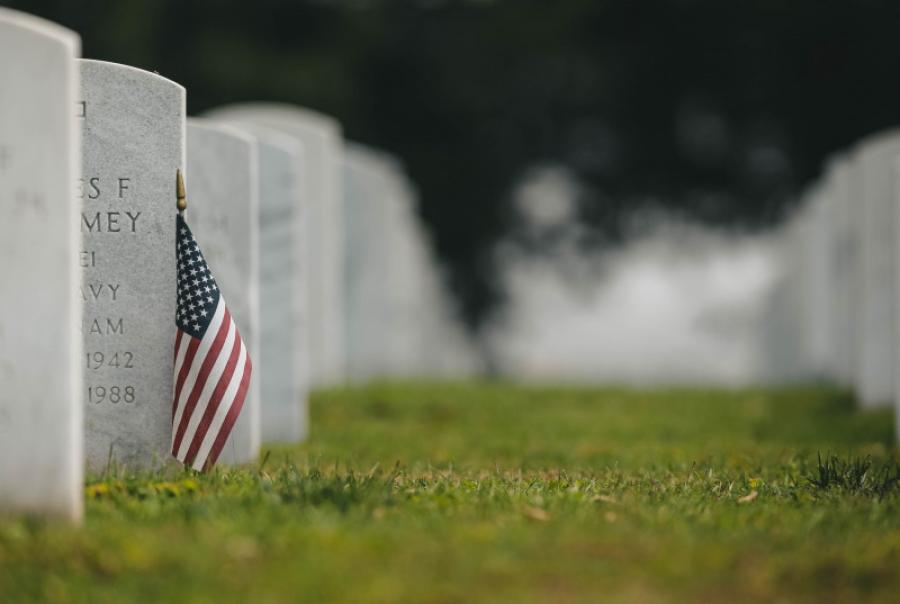Honoring the Faithful
Image

Memorial Day is always a wonderful time to reflect on the “good inheritance”1 (Ps. 16:6) that we enjoy as Americans, as Christians, and within our individual families. We honor those who have given of themselves—especially those who have given their very lives—for our country, and we also remember all of those who have preceded us in our family histories.
As I grow older, Memorial Day also causes me to think about other significant people—especially dedicated servants of God like the pastors, teachers and professors who devoted their lives in teaching me (see Heb. 13:7). They gave of themselves, to the very limits of their strength, to build up my life and ministry.
I could say so much about so many of these men. Of course, one of those whose ministry blessed me very profoundly was Dr. John Whitcomb. Providentially, I was given the wonderful opportunity of both studying under him extensively, and also working with him in ministry for many years.
Memorial Day makes me think of Dr. Whitcomb in particular because, back in 2003 when we visited the Whitcombs at their home in Indianapolis for the first time, it was at the end of the week, following Memorial Day. The purpose of the visit was to begin interviewing Dr. Whitcomb about his life story. I ended up writing on his biography for both a magazine article and a book chapter.2 Our time together also unexpectedly led to Lynnette and me assisting Whitcomb Ministries—an endeavor that continues down to this day.
But back to the tie to Memorial Day, I remember Dr. Whitcomb telling us about what he had done that Monday—and it was so typical of him. He had been preaching somewhere during the weekend, and had spent Memorial Day recording Bible and theology lectures on video for the Christian Workman Studies in Theology program. I regularly think back to that memory of Memorial Day and wish that I could have been there to watch, or that I could experience something of similar significance some Memorial Day.
Dr. Whitcomb was, like so many of his generation, an American hero as a World War II veteran. But he was also, as I titled my article about him, a “Hero of the Faith”—whose mission was to transfer all that he had received (from teachers like Drs. Alva J. McClain, James Boyer and Herman Hoyt) to his many, many students, of which I was blessed to be one.
But it is not only on Memorial Day that I should think about honoring those who have faithfully “entrusted (me) with the gospel” (1 Thess. 2:4). And how can I best honor them?
The answer is found in 2 Tim. 2:2. I believe that this is Paul’s restatement, for the church age, of our Lord’s Great Commission, as found especially in Matt. 28:18-20.
Christ took the methodology that He employed during His earthly ministry and boiled it down to this simple set of propositions. But Paul reworded it, simply but strategically, for use specifically by the church. So, what was Paul telling Timothy to do?
Notice, first of all, that while Paul had certainly instructed Timothy thoroughly (see 2 Tim. 1:13), he was not his only teacher. Their ministry took place “among many witnesses.” Timothy was to take this wealth of spiritual training and “commit (it) to faithful men” (see also Tit. 1:9).
But Paul also places another qualifier upon this process. They had to “be able to teach others also.” The entire process involved at least four spiritual generations—with the implication that it was to endure through the duration of the church age.
Paul specifically modeled this strategy for us in his own ministry at Ephesus. He taught “daily in the school of Tyrannus” (Acts 19:9), with the result, after “two years … that all who dwelt in Asia heard the word of the Lord Jesus” (Acts 19:10). Paul had “not shunned to declare … the whole counsel of God” (Acts 20:27), and was, as a result, “innocent of the blood of all men” (Acts 20:26).
We can best honor those who have invested in our lives by imparting the truth they have taught us to other committed disciples who will follow us—and then take it to many more people.
What better use could there be for Memorial Day than to spend at least part of it thinking about how to accomplish that?
And, as we do so, “may the Lord give (us) understanding in all things” (2 Tim. 2:7).
Notes
1 Scripture taken from the New King James Version®. Copyright © 1982 by Thomas Nelson. Used by permission. All rights reserved.
2 They are as follows: “John C. Whitcomb: Hero of the Faith.” Gospel Herald and The Sunday School Times Vol. 23, No. 4. (Fall 2005): 12-13; and “A Biographical Tribute to Dr. John C. Whitcomb Jr.” In Coming to Grips with Genesis: Biblical Authority and the Age of the Earth, eds. Terry Mortenson and Thane Ury (Green Forest, AR: Master Books, 2008), pp. 437-451.
Paul Scharf 2023 bio
Paul J. Scharf (M.A., M.Div., Faith Baptist Theological Seminary) is a church ministries representative for The Friends of Israel Gospel Ministry, based in Columbus, WI, and serving in the Midwest. For more information on his ministry, visit sermonaudio.com/pscharf or foi.org/scharf, or email pscharf@foi.org.
- 311 views


Discussion